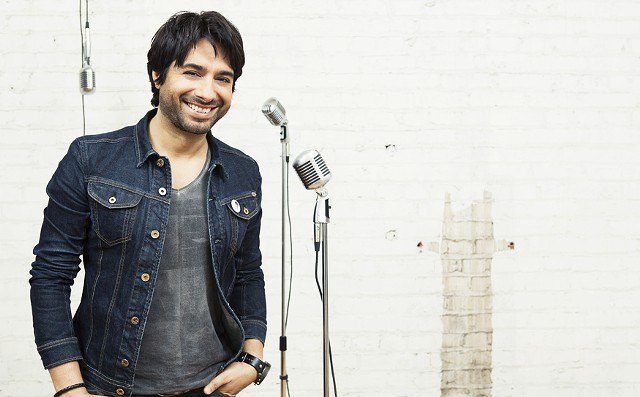The man responsible for bringing a slew of troubling allegations against CBC golden boy Jian Ghomeshi to light over the last few eye-opening weeks does not fit within the historical mould you'd expect of an investigative journalist.
But, in the tight-knit world of Canadian media, Jesse Brown doesn't really fit any kind of status quo.
A veteran reporter who has worked for the CBC, Maclean's and Toronto Life, Brown has always been keenly interested in media criticism — a facet of Canadian journalism that is virtually non-existent. After numerous pitches to traditional news agencies to be their in-house media watchdog went unheeded, Brown set out on his own, launching the crowdfunded podcast and blog, Canadaland, last year.
Since then, he's broken several big stories, beating the country's most respected news agencies to the punch despite few resources and even less funding. He called out Peter Mansbridge for accepting money from a tar sands lobby group, and was the first to shine a light on the Globe and Mail's suspect endorsement of Tim Hudak.
Earlier this year Brown was approached by a young woman who claimed Ghomeshi had sexually abused her. He spent months investigating and eventually uncovered several other women making similar accusations.
Knowing the whale of a story on his hands, Brown initially planned to publish it independently, but soon realized he didn't have the resources (and libel insurance) to handle such a massive scandal. So he went to The Toronto Star, the one publication he felt had "shown some balls in recent years," and with the help of seasoned investigative reporter Kevin Donovan, effectively dropped a bomb on the Canadian media landscape.
Of course, the allegations against Ghomeshi have yet to be proven in court, but the pattern of behaviour that has emerged from nearly a dozen firsthand accounts from exes, casual acquaintances and co-workers is troubling to say the least. What's even more troubling is that there have been whispers about the beloved radio host's abusive behaviour in Canadian media circles for years — and that's where someone like Brown comes in.
In the U.S., Britain and Australia, media criticism has been deeply entrenched into the culture for years. In Canada, however, the same cannot be said, and there are a variety of reasons for that, some Brown has pointed to himself. Firstly, Canadian media is a small, incestuous industry mostly concentrated in Toronto. Everyone knows everyone and ratting out a fellow journalist is not only considered uncouth, but is also a surefire way to guarantee you never see your byline in print again. This is a problem, and it's no surprise a reporter working outside the confines of traditional media is so far the only one really willing to get his hands dirty.
The media culture here is also markedly different from the "gotcha" journalism found in the British and American tabloids, where reporters trip over themselves every chance they get to sensationalize an issue for a few more eyeballs. This is not always a bad thing, as was evidenced by the CBC's levelheaded coverage of the Parliament Hill shooting last month. Compared to some of the headlines found on American networks, which basically screamed "TERRORISM" in all caps, our national broadcaster's measured approach was a breath of fresh air. But when it comes to in-depth, investigative stories, Canadian outlets have far too often played it safe, erring on the side of caution instead of serving the public's interest. Just take the Toronto Star's (and others') initial bumbling of the Rob Ford crack scandal as a prime example: Impervious to legal action in Canadian court, New York-based gossip site Gawker was the first to break the explosive story, forcing the Star to show its cards and publish what they had.
What's even more baffling is that, thanks to a landmark Supreme Court ruling from 2009, Canadian reporters can now use the "responsible communication" defence against defamation claims. As long as due diligence was done in the reporting, a journalist is safe from legal action — even if what he or she writes can be considered defamatory. But, for whatever reason, the defence is rarely used, so the culture of reaction before provocation in Canadian media persists.
The public places its trust implicitly in the hands of our nation's reporters, who are expected to be the eyes and ears of our society. But if the allegations against Ghomeshi are proven true, as many expect they will be, it will be yet another example of why we need people like Brown on the job.
Because if somebody isn't watching the watchers, then who will?




